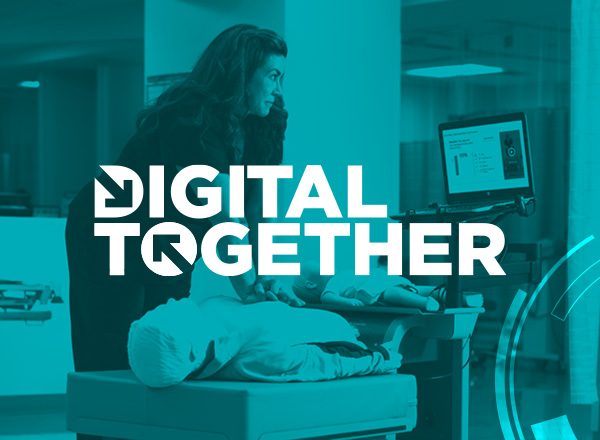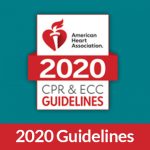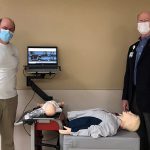Physically distanced digital education solutions – it’s as if our resuscitation education portfolio was designed for the unexpected world we live in today. But the American Heart Association digital resuscitation portfolio has provided superior resuscitation education solutions for years. Features of our programs that were initially designed for convenience and efficiency now keep learners safe during these difficult times.
Benefits of digital resuscitation education when physical distancing is necessary
The RQI digital resuscitation portfolio from the American Heart Association provides immediate steps to ensure the safety of learners while achieving operational efficiency and saving more lives.
CPR education resilience
Our Simulation Stations for skills training are accessed individually and placed within the care setting for easy access before, during, or after shifts, so learners can complete training on their own schedule. Robust cleaning guidelines ensure the stations are ready and safe for each user.
The ability to access these stations independently provides continuity of training when unprecedented situations arise, and other methods of training may compromise learner safety. Without the need to wait for classroom training, staff can continue education in a safe and timely manner. Similarly, adopting a solution from our digital portfolio can provide relief for a backlog of learners in need of training.
With a potentially fluid and ever-changing workforce, our digital solutions provide flexibility through subscriptions that can be assigned to the appropriate staff.
Data transparency
Our RQI digital platform provides data visibility to demonstrate learner engagement, performance, and quality improvement. Program data and real-time analytics can isolate opportunities to improve learner performance, manage compliance, and create a continuous quality improvement program.
Technology-enabled, science-driven
Our technology and science work in tandem and scale with speed and agility to educate learners with the most up-to-date information. For example, as hospitals have been navigating one of the greatest healthcare crises of our time, the American Heart Association has been developing lifesaving guidance and protocols to assist our frontline providers. The RQI digital platform is integrated seamlessly with American Heart Association updates, so our learners have immediate access to this critical information.
Digital resuscitation education can help save more lives
Bottom line – our resuscitation education solutions are deeply rooted in the latest science, leading healthcare organizations on a resuscitation quality improvement journey to maximize lifesaving outcomes. It’s more important than ever to achieve safe and effective CPR competence outside the classroom.
The time for digital is now.
Brian Eigel, Ph.D., is the Chief Operating Officer of RQI Partners.









